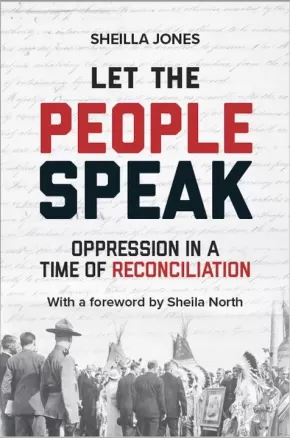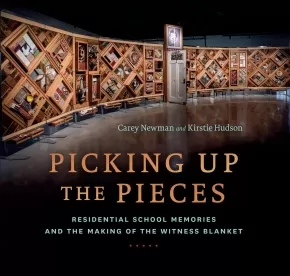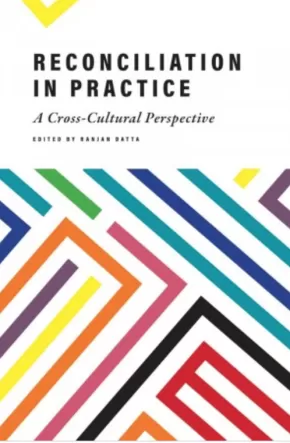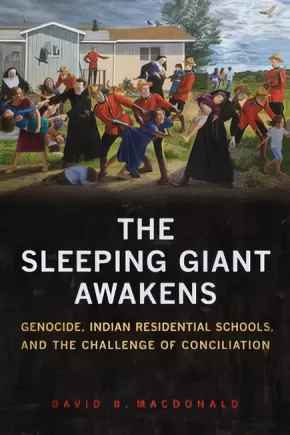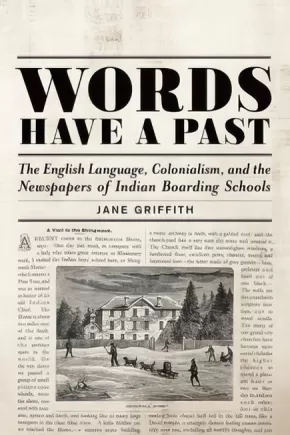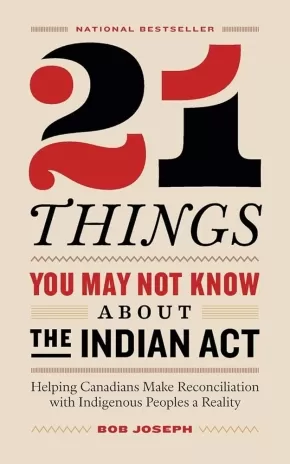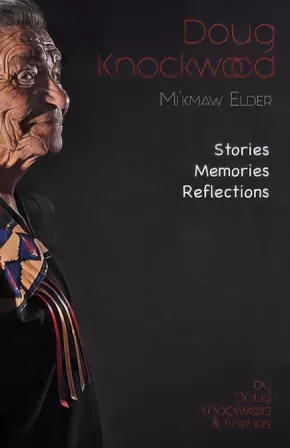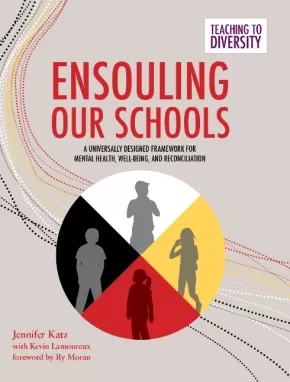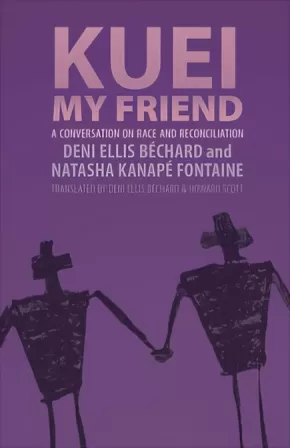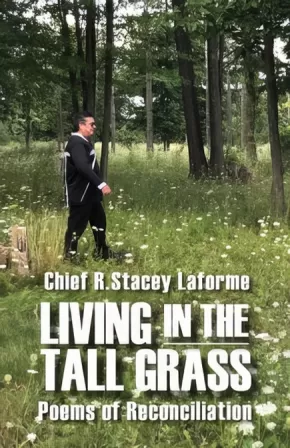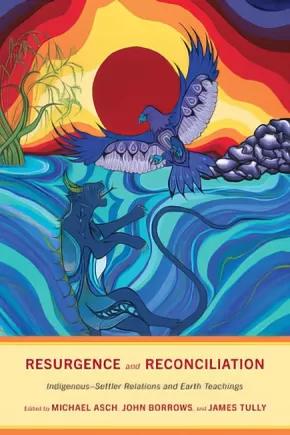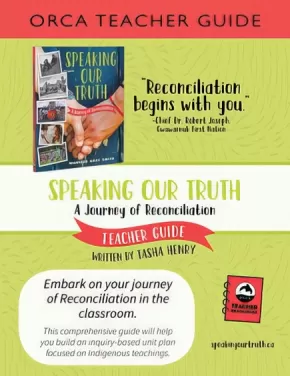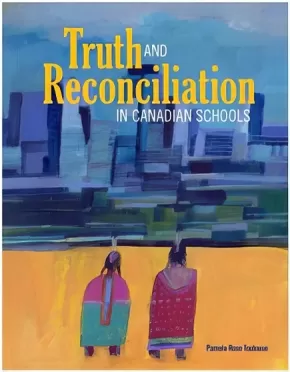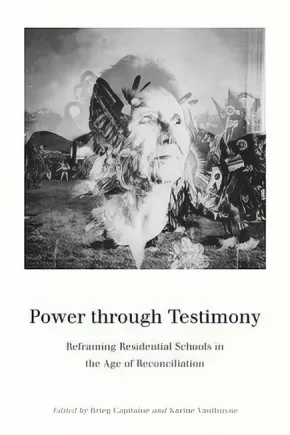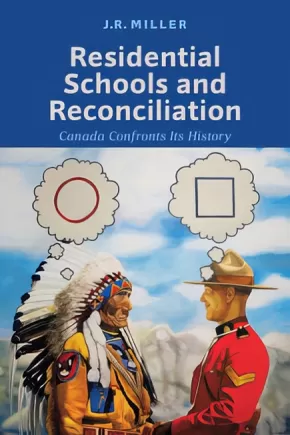Legacy and Reconciliation
Synopsis:
Over the past fifty years, Canada's Indigenous Affairs department (now two departments with more than 30 federal co-delivery partners) has mushroomed into a "super-province" delivering birth-to-death programs and services to First Nations, Inuit and Métis people. This vast entity has jurisdictional reach over 90-percent of Canada's landscape, and an annual budget of some $20-billion. Yet Indigenous people have no means to hold this "super-province" accountable to them. Not a single person in this entity has been elected by Indigenous people to represent their interests. Not one. When it comes to federal Indigenous policy, ordinary Indigenous people in Canada are voiceless and powerless.
In Let the People Speak: Oppression in a Time of Reconciliation, author and journalist Sheilla Jones raises an important question: are the well-documented social inequities in Indigenous communities--high levels of poverty, suicide, incarceration, children in care, family violence--the symptoms of this long-standing, institutionalized powerlessness? If so, the solution lies in empowerment. And the means of empowerment is already embedded in the historic treaties. Jones argues that there can be meaningful reconciliation only when ordinary Indigenous Canadians are finally empowered to make their voices heard, and ordinary non-Indigenous Canadians can join with them to advance a shared future.
Educator Information
Includes a foreword from Sheila North. Sheila is from the Bunibonibee Cree Nation and is the former Grand Chief of the Manitoba Keewatinowi Okimakanak (MKO), and former Chief Communications Officer for the Assembly of Manitoba Chiefs. She is a former Gemini-nominated CBC journalist, former CTV journalist and documentarist.
Additional Information
256 pages | 6.00" x 9.00"
Synopsis:
Every object tells a story.
Picking Up the Pieces tells the story of the making of the Witness Blanket, a living work of art conceived and created by Indigenous artist Carey Newman. It includes hundreds of items collected from residential schools across Canada, everything from bricks, photos and letters to hockey skates, dolls and braids. Every object tells a story.
Carey takes the reader on a journey from the initial idea behind the Witness Blanket to the challenges in making it work to its completion. The story is told through the objects and the Survivors who donated them to the project. At every step in this important journey for children and adults alike, Carey is a guide, sharing his process and motivation behind the art. It's a very personal project. Carey's father is a residential school Survivor. Like the Blanket itself, Picking Up the Pieces calls on readers of all ages to bear witness to the residential school experience, a tragic piece of Canada’s history.
"In the traditions of my Salish ancestors, a blanket is gifted to uplight the spirit, protect the vulnerable or honour the strong. I made this blanket for the Survivors, and for the children who never came home; for the dispossessed, the displaced and the forgotten. I made this blanket so that I will never forget -- so that we will never forget." - Carey Newman
Reviews
"Picking Up the Pieces is both a crucial record of history and an outstanding assertion of love and community. The story behind the creation of the powerful Witness Blanket project is one of great care and consideration, with residential school Survivors and their families at the centre. By sharing his own family's connection to a brutal and shameful part of Canadian history, renowned artist Carey Newman brilliantly guides us through the meticulous and thoughtful process of creating one of the most important pieces of art to exist in this country. I had the privilege of experiencing the Witness Blanket on its tour, and it was a poignant moment that will stay with me for the rest of my life. Reading how it all came together is yet another vital experience. Like the Witness Blanket itself, Picking Up the Pieces will educate and enlighten Canadians for generations to come. It's a must-read for anyone seeking to understand Canada's residential-school saga. Most importantly, it's a touchstone of community for those survivors and their families still on the path to healing." — Waubgeshig Rice, journalist and author of Moon of the Crusted Snow, March 2019
Educator Information
Themes: Indigenous Art, Reconciliation, Residential Schools, Survivor Stories, Intergenerational Trauma
Suitable for most ages (about 12 years+). Useful social studies or Indigenous studies resource for pre-teens and teens; however, it does make reference to sexual, emotional, and physical abuse and trauma.
Recommended in the Canadian Indigenous Books for Schools 2019-2020 resource list for grades 11 and 12 and as a teacher resource. Useful for these subjects: English Language Arts, Media Studies, Social Studies.
Additional Information
180 pages | 10.75" x 10.00"
Synopsis:
In 2015, the Truth and Reconciliation Commission released a report designed to facilitate reconciliation between the Canadian state and Indigenous Peoples. Its call to honour treaty relationships reminds us that we are all treaty people — including immigrants and refugees living in Canada. The contributors to this volume, many of whom are themselves immigrants and refugees, take up the challenge of imagining what it means for immigrants and refugees to live as treaty people. Through essays, personal reflections and poetry, the authors explore what reconciliation is and what it means to live in relationship with Indigenous Peoples.
Speaking from their personal experience — whether from the education and health care systems, through research and a community garden, or from experiences of discrimination and marginalization — contributors share their stories of what reconciliation means in practice. They write about building respectful relationships with Indigenous Peoples, respecting Indigenous Treaties, decolonizing our ways of knowing and acting, learning the role of colonized education processes, protecting our land and environment, creating food security and creating an intercultural space for social interactions.
Perhaps most importantly, Reconciliation in Practice reminds us that reconciliation is an ongoing process, not an event, and that decolonizing our relationships and building new ones based on understanding and respect is empowering for all of us — Indigenous, settler, immigrant and refugee alike.
Educator Information
Table of Contents
Preface
Contributors
Introduction
Reconciliation: Challenges and Possibilities (Ranjan Datta)
Sámi Reconciliation in Practice: A Long and Ongoing Process (Irja Seurujärvi-Kari and Pirjo Kristiina Virtanen)
Reconciliation Through Decolonization (Colleen J. Charles)
Reconciliation: A White Settler Learning from the Land (Janet McVittie)
Integrating Indigenous Knowledge in Practice and Research: A New Way Forward for the Immigrant Health Professionals (Farzana Ali)
Reconciliation Through Transnational Lenses: An Immigrant Woman’s Learning Journey (Jebunnessa Chapola)
Letter to John A. Macdonald (Chris Scribe)
Reconciliation as Ceremonial Responsibility: An Immigrant’s Story (Ranjan Datta)
Reconciliation via Building Respectful Relationships and Community Engagement in Indigenous Research (Valerie Onyinyechi Umaefulam)
Reconciliation and New Canadians (Ali Abukar)
Holes and Gray (Khodi Dill)
References
Index
Additional Information
168 pages | 6.00" x 9.00"
Synopsis:
Confronting the truths of Canada’s Indian Residential School system has been likened to waking a sleeping giant. In this book, David B. MacDonald uses genocide as an analytical tool to better understand Canada’s past and present relationships between settlers and Indigenous peoples. Starting with a discussion of how genocide is defined in domestic and international law, the book applies the concept to the forced transfer of Indigenous children to residential schools and the "Sixties Scoop," in which Indigenous children were taken from their communities and placed in foster homes or adopted.
Based on archival research and extensive interviews with residential school survivors, officials at the Truth and Reconciliation Commission of Canada, and others, The Sleeping Giant Awakens offers a unique and timely perspective on the prospects for conciliation after genocide, exploring how moving forward together is difficult in a context where many settlers know little of the residential schools and the ongoing legacies of colonization, and need to have a better conception of Indigenous rights. It offers a detailed analysis of how the TRC approached genocide in its deliberations and in the Final Report.
Crucially, MacDonald engages critics who argue that the term genocide impedes understanding of the IRS system and imperils prospects for conciliation. By contrast, this book sees genocide recognition as an important basis for meaningful discussions of how to engage Indigenous-settler relations in respectful and proactive ways.
Additional Information
224 pages | 6.00" x 9.00"
Synopsis:
For nearly 100 years, Indian boarding schools in Canada and the US produced newspapers read by white settlers, government officials, and Indigenous parents. These newspapers were used as a settler colonial tool, yet within these tightly controlled narratives there also existed sites of resistance. This book traces colonial narratives of language, time, and place from the nineteenth-century to the present day, post-Truth and Reconciliation Commission.
Educator Information
1. Bury the Lede: Introduction
2. Printer’s Devil: The Trade of Newspapers
3. Indigenous Languages Did Not Disappear: English Language Instruction
4. "Getting Indian Words": Representations of Indigenous Languages
5. Ahead by a Century: Time on Paper
6. Anachronism: Reading the Nineteenth Century Today
7. Layout: Space, Place, and Land
8. Concluding Thoughts
Additional Information
256 pages | 6.00" x 9.00"
Synopsis:
Based on a viral article, 21 Things You May Not Know About the Indian Act is the essential guide to understanding the legal document and its repercussion on generations of Indigenous Peoples, written by a leading cultural sensitivity trainer.
Since its creation in 1876, the Indian Act has shaped, controlled, and constrained the lives and opportunities of Indigenous Peoples, and is at the root of many enduring stereotypes. Bob Joseph’s book comes at a key time in the reconciliation process, when awareness from both Indigenous and non-Indigenous communities is at a crescendo. Joseph explains how Indigenous Peoples can step out from under the Indian Act and return to self-government, self-determination, and self-reliance—and why doing so would result in a better country for every Canadian. He dissects the complex issues around truth and reconciliation, and clearly demonstrates why learning about the Indian Act’s cruel, enduring legacy is essential for the country to move toward true reconciliation.
Reviews
"Increasing Canadians' knowledge about the terrible foundation this country has been built on is a critical part of reconciliation. Bob Joseph has highlighted some of the unbelievable provisions of the Indian Act and how they have impacted First Nations in Canada and gives a brief overview of what we may replace it with going forward. His book provides helpful context to the dialogue that needs to take place in Canada." — Kim Baird, O.C., O. B. C.; Owner, Kim Baird Strategic Consulting; Member of the Tsawwassen First Nation; Negotiator of the Tsawwassen First Nation Treaty
"From declaring cultural ceremonies illegal, to prohibiting pool hall owners from granting Indigenous people entrance, from forbidding the speaking of Indigenous languages, to the devastating policy that created residential schools, Bob Joseph reveals the hold this paternalistic act, with its roots in the 1800s, still has on the lives of Indigenous people in Canada in the 21st century. This straightforward book is an invaluable resource. There is much for non-Indigenous people to learn and to do. But equally important, there is much to unlearn and to undo. The time is right for this book. Thank you, Bob Joseph. Gilakasla." — Shelagh Rogers, O.C.; Truth and Reconciliation Commission of Canada Honourary Witness
"Bob’s ability to navigate the complex history of the Indian Act is a wonder to behold. He provides depth and knowledge for Indigenous and non-Indigenous scholars alike. Whether you are an Indigenous scholar or a neophyte, his articulate, insightful and comprehensive analysis on the history of the Indian Act provides a sound understanding on the present narrative of Indigenous peoples in Canada. By way of the Indian Act, this book provides an excellent analysis of the ongoing relationship and predicament between provincial and federal governments and Indigenous peoples in the 21st century." — JP Gladu, President and CEO of the Canadian Council for Aboriginal Business
Educator Information
Recommended in the Canadian Indigenous Books for Schools 2019-2020 resource list as being useful for grades 4-12 and as a teacher resource in these subject areas: English Language Arts and Social Studies.
Additional Information
160 pages | 5.22" x 8.05"
Synopsis:
Freeman Douglas Knockwood is a highly respected Elder in Mi’kmaw Territory and one of Canada’s premier addictions recovery counsellors. The story of his life is one of unimaginable colonial trauma, recovery and hope.
At age 6, Knockwood was placed in the Shubenacadie Residential School, where he remained for a year and a half. Like hundreds of other Mi’kmaw and Maliseet children, he suffered horrible abuse. By the time he reached his twenties, he was an alcoholic. He contracted tuberculosis in the 1940s, had one lung and several ribs removed.
Having hit rock bottom, Knockwood, gained sobriety in his thirties through Alcoholics Anonymous. He went on to become a much sought after drug and alcohol rehabilitation counsellor in Canada. Many of Doug’s initiatives have been implemented across Canada and used by thousands of people, both Indigenous and non-Indigenous. Looking back now, says Doug, “I realize I wasn’t only helping them. They were helping me to gather strength in my presentations, in feeding them the knowledge I received, the same as it was fed to me. That helped me to gain confidence in myself; doing all these things that I didn’t know I could yet do”.
This book is an in-depth look at Doug Knockwood’s life that also casts a wide and critical glance at the forces that worked to undermine his existence and the indomitable spirit of a man who recovered from, yet still struggles to overcome, those forces.
Educator Information
The 2018-2019 Canadian Indigenous Books for Schools list recommends this resource for Grades 10-12 for these subjects: English Language Arts, Social Justice, Social Studies.
Additional Information
128 pages | 6.00" x 9.00" | Written by Doug Knockwood and Friends
Synopsis:
In an educational milieu in which standards and accountability hold sway, schools can become places of stress, marginalization, and isolation instead of learning communities that nurture a sense of meaning and purpose. In Ensouling Our Schools, author Jennifer Katz weaves together methods of creating schools that engender mental, spiritual, and emotional health while developing intellectual thought and critical analysis.
Kevin Lamoureux contributes his expertise regarding Indigenous approaches to mental and spiritual health that benefit all students and address the TRC Calls to Action.
Grade: For all teachers
Reviews
Additional Information
200 pages | 8.00" x 10.50"
by Jennifer Katz | with Kevin Lamoureux | foreword by Ry Moran
Synopsis:
Kuei, My Friend is an engaging book of letters: a literary and political encounter between Innu poet Natasha Kanapé Fontaine and Québécois-American novelist Deni Ellis Béchard. Choosing the epistolary form, they decided to engage together in a frank conversation about racism and reconciliation.
Intentionally positioned within the contexts of the Idle No More movement, Canada’s Truth and Reconciliation Commission, and the National Inquiry into Missing or Murdered Aboriginal Women and Girls, the letters in Kuei, My Friend pose questions in a reciprocal manner: how can we coexist if our common history involves collective and personal episodes of shame, injury, and anger? how can we counteract misunderstandings of the Other, which so often lead to contempt and rejection? how can we educate non-Indigenous communities about the impact of cultural genocide on the First Peoples and the invisible privileges resulting from historical modes of domination?
In an attempt to open a sincere and productive dialogue, Kanapé Fontaine and Ellis Béchard use their personal stories to understand words and behaviours that are racist or that result from racism. With the affection and intimacy of a friend writing to a friend, Natasha recounts to her addressee her discovery of the residential schools, her obsession with the Oka Crisis of 1990, and her life on the Pessamit reserve. Reciprocating, Deni talks about his father’s racism, the segregation of African-Americans and civil rights, and his identity as a Québécois living in the English-speaking world.
By sharing honestly even their most painful memories, these two writers offer an accessible, humanist book on the social bridge-building and respect for difference. Kuei, My Friend is accompanied by a chronology of events, a glossary of relevant terms in the Innu language, and, most importantly, a detailed teacher’s guide that includes topics of discussion, questions, and suggested reflections for examination in a classroom setting.
Educator Information
Recommended resource for Grades 10-12 in these areas: BC First Peoples, Contemporary Indigenous Studies, English First Peoples, English Studies, Literary Studies.
Includes an Innu-aimun glossary and a teacher's guide to help classroom discussion facilitation.
Recommended in the Canadian Indigenous Books for Schools 2019-2020 resource list as being useful for grades 10 to 12 for English Language Arts and Social Studies.
This resource is also available in French: Kuei, je te salue: Conversation sur le racisme.
Additional Information
176 pages | 6.21" x 8.46" | Translated by & Deni Ellis Béchard & Howard Scott
Synopsis:
“We should not have to change to fit into society the world should adapt to embrace our uniqueness.” -- Chief Stacey Laforme
In Living in the Tall Grass: Poems of Reconciliation, Chief Stacey Laforme gives a history of his Anishinaabe people through stories and poetry to let Canadians see through the eyes of Indigenous people. Living in the Tall Grass is written in a way that makes the reader feel he or she might be sitting down with Chief Laforme, sharing experiences from their lives. Some poems share humour, while others express pain, though each comes from the heart.
Reviews
"Laforme is a high-profile leader, attending scores of events, large and small in Ontario and gently reminding listeners that most of the southern part of the province is the traditional homelands of the Mississaugas of the New Credit. True to his belief in the longer-lasting impact of the arts, he’ll often open a speech with a verse. “The future lies in the arts, and it lies in all our youth, not just the Indigenous youth,” he says. “Arts make change … if we can share a moment through the arts whether its song, dance, poetry, painting, it transcends even language barriers." — Steve Milton, The Hamilton Spectator
Educator Information
Recommended for Grades 5-12 for English Language Arts.
Caution: Some poems touch on violence and suicide.
Themes: hope, the environment, Residential Schools.
Additional Information
160 pages | 5.50" x 8.50" | duotone photographs
Synopsis:
The two major schools of thought in Indigenous-Settler relations on the ground, in the courts, in public policy, and in research are resurgence and reconciliation. Resurgence refers to practices of Indigenous self-determination and cultural renewal whereas reconciliation refers to practices of reconciliation between Indigenous and Settler nations, such as nation-with-nation treaty negotiations. Reconciliation also refers to the sustainable reconciliation of both Indigenous and Settler peoples with the living earth as the grounds for both resurgence and Indigenous-Settler reconciliation.
Critically and constructively analyzing these two schools from a wide variety of perspectives and lived experiences, this volume connects both discourses to the ecosystem dynamics that animate the living earth. Resurgence and Reconciliation is multi-disciplinary, blending law, political science, political economy, women's studies, ecology, history, anthropology, sustainability, and climate change. Its dialogic approach strives to put these fields in conversation and draw out the connections and tensions between them.
By using “earth-teachings” to inform social practices, the editors and contributors offer a rich, innovative, and holistic way forward in response to the world’s most profound natural and social challenges. This timely volume shows how the complexities and interconnections of resurgence and reconciliation and the living earth are often overlooked in contemporary discourse and debate.
Reviews
"Resurgence and Reconciliation provides a broader critical framework from which readers may begin to reset the charged political landscape of reconciliation. In the quickly expanding literature, law, and activism, some of the urgency of reconciliation has been unnecessarily lost. This book calls for quiet contemplation and a peaceful reframing of discussion and negotiations in what has become a noisy, busy field of Canada’s national reconciliation project." - Jeffery G. Hewitt, Faculty of Law, University of Windsor
"This collection represents a sustained and engaged dialogue between eminent and emerging scholars of Indigenous rights as they attempt to conceptualize, critique, collaborate, and document relationships of reconciliation and resurgence. The editors and contributors take on the complex debates, challenges, intersections, and fractions facing Canadians, both Indigenous and non-Indigenous, making this a profoundly important counter-colonial work." - Jane McMillan, Department of Anthropology, St Francis Xavier University
Additional Information
384 pages | 6.00" x 9.00"
Synopsis:
Speaking Our Truth: A Journey of Reconciliation is a nonfiction book for middle readers that examines how we can foster Reconciliation in an accessible way. Centered around the writings of Monique Gray Smith, this teacher guide is a comprehensive support for educators focusing on Indigenous teachings and looking to build an inquiry-based unit plan about Reconciliation. Activities such as essential questions from the author, metaphors for learning and cross-curricular plans are laid out clearly, with instructions and appropriate vocabulary for teachers and students to embark on this journey of Reconciliation together.
Educator Information
This resource helps teachers embark on a journey of Reconciliation in the classroom. The author, Tasha Henry, holds a Master of Education in Language, Culture and Teaching from York University and has been teaching for over twenty years.
Recommended in the Canadian Indigenous Books for Schools 2019-2020 resource list as being a useful Teacher Resource with regard to English Language Arts, Social Justice, and Social Studies.
Find the student resource here: Speaking Our Truth: A Journey of Reconciliation
Additional Information
46 pages | 8.50" x 11.00"
Synopsis:
In this book, author Pamela Toulouse provides current information, personal insights, authentic resources, interactive strategies and lesson plans that support Indigenous and non-Indigenous learners in the classroom. This book is for all teachers that are looking for ways to respectfully infuse residential school history, treaty education, Indigenous contributions, First Nation/Métis/Inuit perspectives and sacred circle teachings into their subjects and courses. The author presents a culturally relevant and holistic approach that facilitates relationship building and promotes ways to engage in reconciliation activities.
Additional Information
147 pages | 8.00" x 10.50"
Synopsis:
Power through Testimony documents how survivors are remembering and reframing our understanding of residential schools in the wake of the 2007 Indian Residential Schools Settlement Agreement and the Truth and Reconciliation Commission (TRC), a forum for survivors, families, and communities to share their memories and stories with the Canadian public. The commission closed and reported in 2015, and this timely volume reveals what happened on the ground.
Drawing on field research during the commission and in local communities, the contributors reveal how survivors are unsettling colonial narratives about residential schools and how the churches and former school staff are receiving or resisting the “new” residential school story. Part 1 details how residential schools have been understood and represented by various groups and individuals over time and how survivors’ testimonies at the commission are changing those representations. Part 2 examines whether the stories of abuse and trauma now circulating are overpowering less sensational stories, preventing other voices and memories from surfacing in local communities. Part 3 explores how the churches and former school staff have received this new testimony and what their response means for future relations with Aboriginal peoples across the country.
Power through Testimony shows that by bringing to light new stories about residential schools and by encouraging the denunciation of other historical wrongs, the TRC was more than a symbolic act. Ultimately, however, the contributors question the power of the TRC to unsettle dominant colonial narratives about residential schools and transform the relationship between Indigenous people and Canadian society.
As one of the first books published on Canada’s Truth and Reconciliation Commission, Power through Testimony will be of interest to students and scholars of Aboriginal studies, anthropology, and colonial studies and all Canadians interested in transitional justice and human rights.
Educator Information
Contributors: Janice Cindy Gaudet, Cheryl Gaver, Robyn Green, Jula Hughes, Lawrence Martin/Wapistan, Charles R. Menzies, Arie Molena, Ronald Niezen, Simone Poliandri, and Eric Taylor Woods
Additional Information
252 pages | 6.00" x 9.00"
Synopsis:
Since the 1980s successive Canadian institutions, including the federal government and Christian churches, have attempted to grapple with the malignant legacy of residential schooling, including official apologies, the Royal Commission on Aboriginal Peoples, the Indian Residential Schools Settlement Agreement, and the Truth and Reconciliation Commission (TRC). In Residential Schools and Reconciliation, award winning author J. R. Miller tackles and explains these institutional responses to Canada’s residential school legacy. Analysing archival material and interviews with former students, politicians, bureaucrats, church officials, and the Chief Commissioner of the TRC, Miller reveals a major obstacle to achieving reconciliation – the inability of Canadians at large to overcome their flawed, overly positive understanding of their country’s history. This unique, timely, and provocative work asks Canadians to accept that the root of the problem was Canadians like them in the past who acquiesced to aggressively assimilative policies.
Excerpt
From the Conclusion:
"Canadians cannot approach reconciliation thinking that fine words and amicable gestures are enough. First Nations want their claims settled and many are interested in concluding treaties. Until Canada moves effectively to meet their desires, the country lacks the measures of social justice for Native peoples that are precondition for progress towards reconciliation...The cause of reconciliation is not hopeless; there are encouraging signs of individual and local initiatives designed to bring about reconciliation on a small scale...If enough of these small actions develop and spread, they could create the popular support for large-scale state measures that will redress the hard, material wrongs that stand in the way of reconciliation. Should that blissful day ever come, Canada will be able to advance meaningfully towards the goal of reconciliation."
Reviews
Professor Jim Miller of the University of Saskatchewan pulls back the curtain on the historical blame game. Residential Schools and Reconciliation documents Ottawa’s handling of Aboriginal issues. This is not ancient history. It just happened."
— Holly Doan, Blacklock’s Reporter. Saturday, November 18, 2017
As colonial nations around the world seek pathways to post-conflict reconciliation, J.R. Miller’s timely work is an important reminder of both the potential obstacles and the healing possibilities of such initiatives.
— Leigh Anne Williams, Publishers Weekly, February 12, 2018
Additional Information
368 pages | 6.00" x 9.00"

